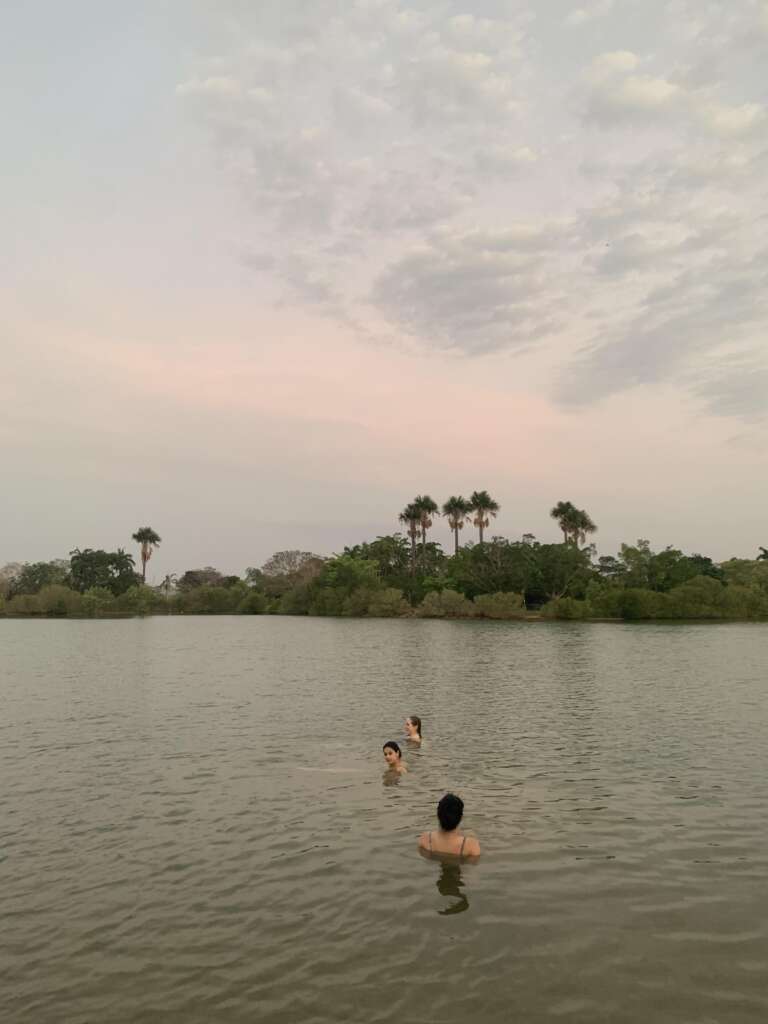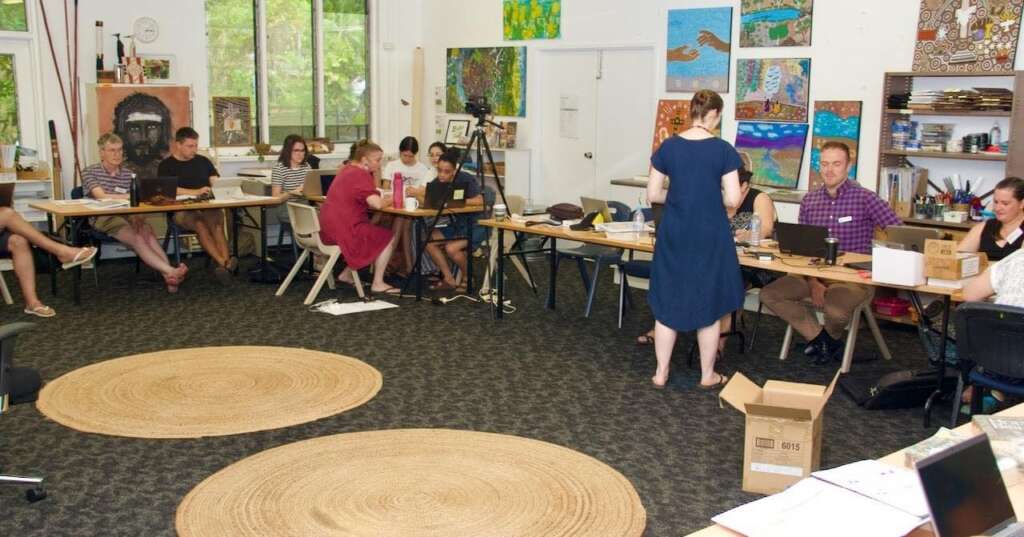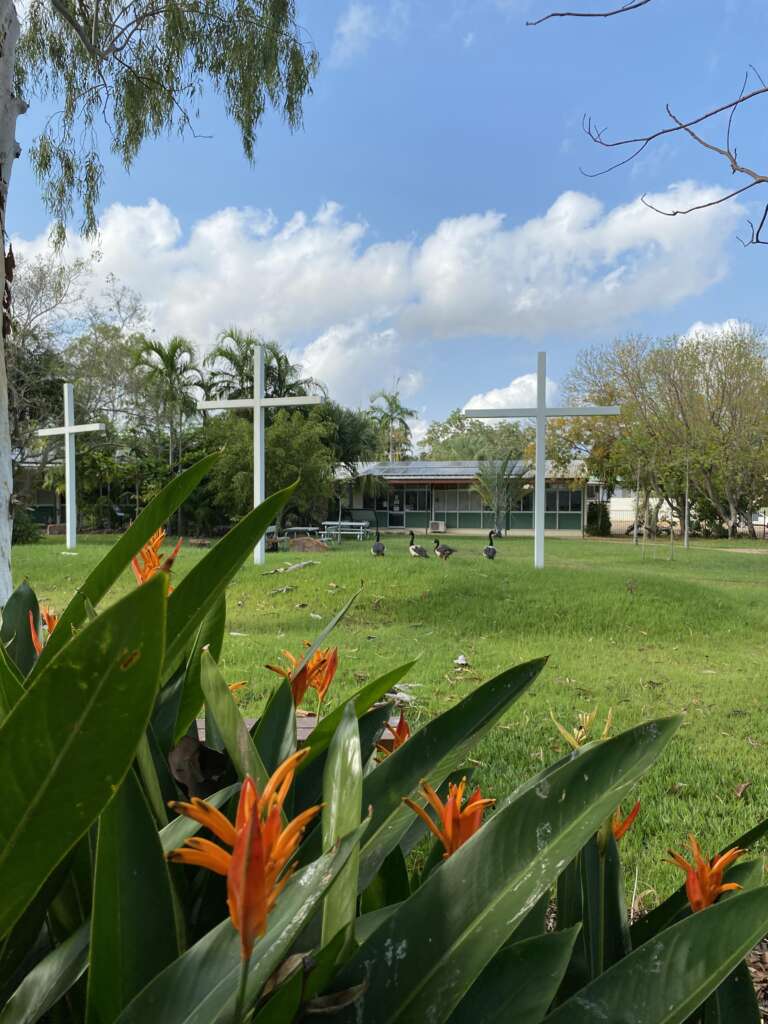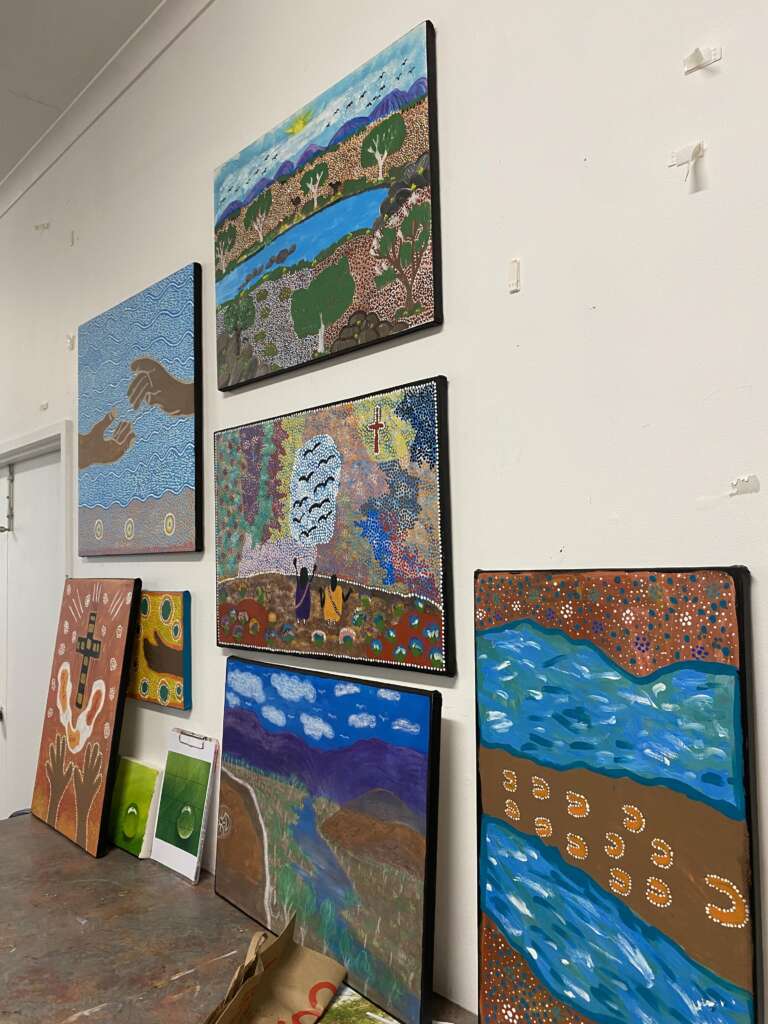Everyday Christian: Ensuring God's message doesn’t get lost in translation
Until I joined Bible Society as an intern, I never really thought about Bible translation. I knew when I opened my Bible app, I could see over 100 different versions of the same words written slightly differently. But I had never thought about the kind of work that goes into actually doing translations, or what it means to translate the Bible into another language.
So it was fun and interesting to learn what it involves and even try my hand at translating at a conference held at Nungalinya College in Darwin in October.

The interns take a dip at Lake Mackenzie in Darwin.
Known as SMART, this event was about “Supporting, Mentoring and Resourcing Translators”; in short, we spent a week pooling all of our knowledge and resources to help each other grow as better consultants and translators.
I and two other interns were invited to be part of the Bible Society team and be flies on the wall. However, this experience was so much more than we had anticipated.

Participants in the Bible translation course at Nungalinya College in Darwin.
The whole week was jam-packed with learning and insights. From 9 am until lunch, conference attendees gave a range of workshops. Topics ranged from testimonies about living in remote Indigenous Australian communities, translation processes, a brief introduction to biblical Greek history and language, as well as roles and opportunities to work in translation consultancy.
I finally understood why Bible translation is so important.
We learned the importance of the peer-checking process – having Indigenous elders from the various communities work with translators to discuss the passages to ensure that the language was not a literal translation but reflected the people and culture in that community. This really struck me, and I finally understood why Bible translation is so important. There is something so special about someone being able to read God’s word in their heart language, in a way that moves them – so that they can know that God loves and speaks to us each individually.

Magpie geese graze near three crosses of Calvary at Nungalinya College, Darwin.
In the afternoons, we even got the opportunity to try out a translation application, “Paratext”, and have a go at writing a practice translation. Now, as someone who can only read, write and speak English (although I have a 30-day streak in Greek on Duolingo), I thought it would be easy – after all, people have already done it in English more than 100 times!
While working on a children’s version of biblical text, we soon realised just how nuanced translating really is. We were not just “paraphrasing” the words; we looked at the literal word-by-word translation from Greek, read a few varied English translations, then discussed the overall purpose of the passage, where it fits into the Bible, and any metaphors we had to be careful wouldn’t get lost in translation. I found it so fun and interesting – one of my favourite parts of the whole trip. It was also exciting as we got to share a really special moment where the Bible was translated into an Indigenous Australian language for the first time.

Christian Indigenous art by students of the Art and Faith course at Nungalinya College, Darwin.
The whole trip was fantastic, and I want to thank each and every member who was there, participating, presenting and sharing. It is truly an experience I will cherish forever.
Sofia Walia is one of Bible Society Australia’s 2023 interns. Sofia is studying Psychology and Cognitive Brain Sciences at Macquarie University and attends church in Manly, Sydney.
To find out more about Bible translation and to support this work, visit biblesociety.org.au.
Email This Story
Why not send this to a friend?


